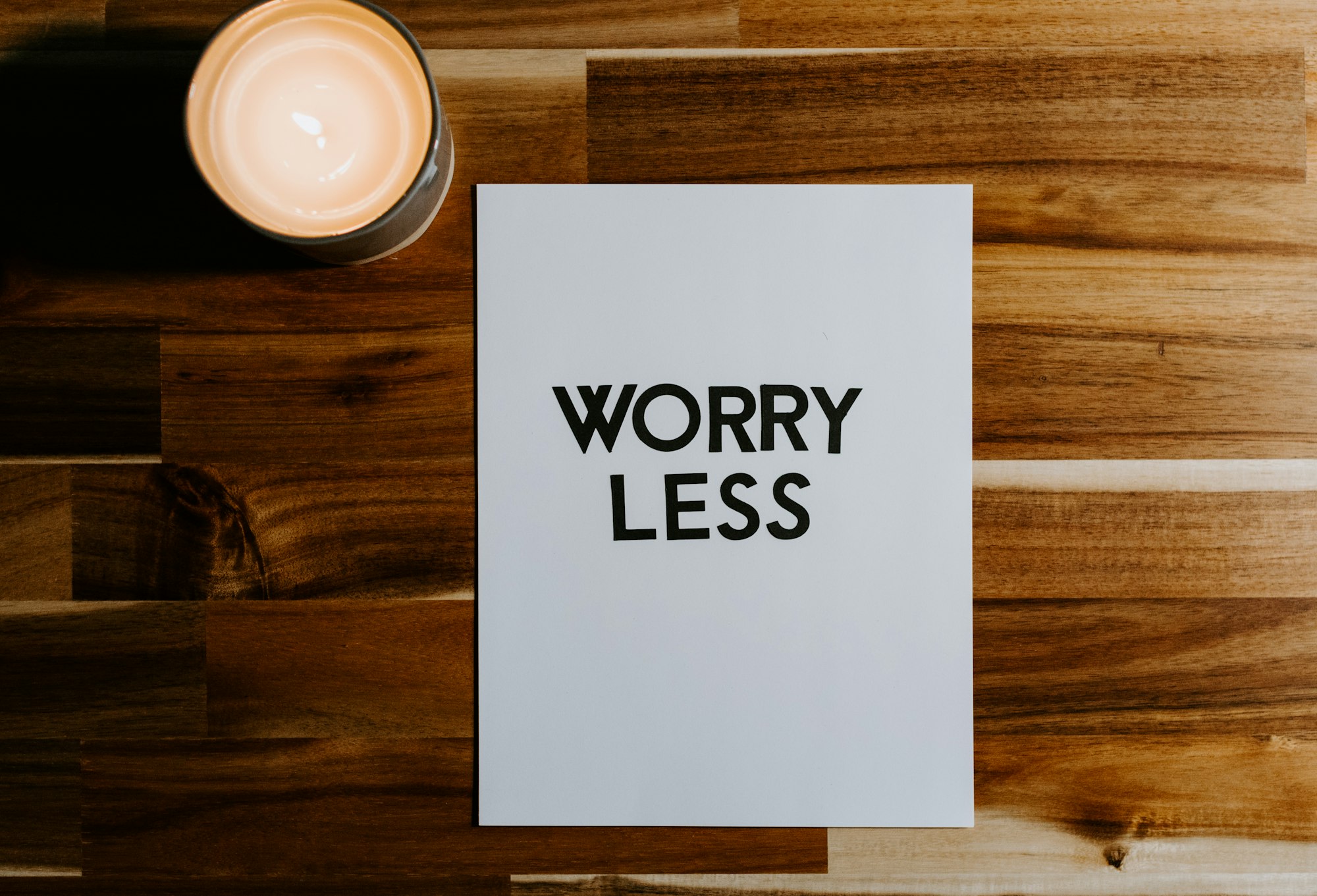Content Summary
Have you ever felt tense, worried, or scared in response to a real or perceived threat? Chances are you’ve experienced anxiety at one point or another. Contrary to popular belief, anxiety isn’t always negative—in fact, it can be beneficial as it helps improve your performance in certain situations. In this blog post, we’ll dive into what anxiety is and how to effectively manage it.
What Is Anxiety?
Anxiety is the body’s natural response to stress. When feeling anxious, your brain triggers a system that helps you cope with any potential danger or change. This system is known as the fight-or-flight response; if you feel threatened by an outside source (real or imagined), your body will react by preparing itself for battle or flight. This response releases hormones like cortisol and adrenaline, which can cause physical symptoms such as increased heart rate, sweating, and trembling.
It Is Natural to Feel Anxious?
There’s a good chance that we’ve all experienced feelings of anxiety in response to real or perceived threats at one time or another. For most people, these feelings are normal as the brain is hard-wired to caution you at times of danger, change and the unknown.
In fact, in many situations, experiencing a certain level of anxiety and stress can help boost your performance in specific tasks. For instance, a person might experience a heightened level of anxiety the days leading up to a public event and that’s a completely normal reaction.
Psychologists believe that anxiety is your body’s natural response to stress and that this stress triggers a system in the brain that accentuates your performance. So, a little anxiety now and then is okay and might be your body’s way of preparing for an impending change.
That Said, Not Every Anxious Feeling Is Normal
For some, these feelings can be all-consuming, impairing the individual’s ability to enjoy life as they’d otherwise like to. For some, anxiety might treat their everyday events as life-or-death situations. It can become a disorder and that isn’t a good place to be in. Fortunately, in most cases, there is always a way out. And one of the first steps to finding that way out is to dive into your mind and listen to what it might be trying to tell you.

How to Understand Accept and Embrace Your Anxiety?
There is no shame in being anxious. And we would prefer not to have put this obvious point across (because it’s obvious and should ideally not need any re-affirmation). But sadly, because of how this feeling can be trivialized and/or stigmatized, it’s important to let all those who experience anxiety know that they are not alone and by accepting it they’ll also be overcoming it.
Likewise, it’s important to let others know that they shouldn’t be underestimating the pain of those with anxiety disorders. Worse, that they shouldn’t be stigmatizing anxious people by saying things like, ‘you’re overacting’, or ‘you’re so OCD,’ when they might not know enough or when that’s not what they mean.
How Our Brains Respond to Anxiety?
Our thoughts can manifest as physical reactions in our bodies. Our bodies, in response to the flight-or-fight response, trigger stress hormones into the bloodstream the moment they’re subjected to any type of anxiety.
These stress hormones, if not put to rest in quick time, can manifest in responses such as accelerated heartbeat, headaches, nausea, sweating, muscle tension, stammering, and trembling.
Worse, over time and due to negligence, they can also weaken the immune system and leave us vulnerable to a host of ailments.
For some, intrusive thoughts might be an everyday routine, making it the trigger for periods of panic and intense anxiety.
They might also be the result of anxiety itself and can add a layer of fear and stress to what the person is already experiencing. These types of intrusive thoughts can be overwhelming, forcing the person thinking them to obsess about them. For instance, you have a task in front of you. It’s simple and straightforward.
You’ve probably even done it before. But the thoughts in your head might overload you with endless information and possibilities, most of which might be unnecessary and unwanted.
“What if something unknown crops up, what might those unknown things be, and will I be able to handle it?” “What if I can’t, what if I fail, will I be judged? “What if I get a panic attack when I’m doing this task?”
These thoughts are very real and put the person experiencing them into a frenzy, sometimes even forcing them to opt out of the task.
The 7 Ways Anxiety Might Be Slowing Your Quality Life Down
- Overthinking and obsessive thoughts
- Lack of self-assurance and fear of judgment
- Phobias and traumas
- Workplace anxiety
- Social anxiety
- Eating disorder
- Insomnia

Finding Your Journey Towards the Solution
What is Overthinking and Obsessive Thoughts?
When was the last you had a passing, somewhat intrusive thought that appeared to come out of nowhere, from way outside your immediate realm of collective thoughts?
If you’re like most people, then the answer might be closer than you initially realized.
Now, we all get wound up between fleeting and excessive thoughts sometimes and that becomes the new normal (unless you mindfully train yourself to think less and drop the thoughts). You see, now and then (more frequently than we might like it to be actually), we all have passing thoughts that might seem out of our control.
When they begin to consume you, they can pose a serious chronic problem. Because overthinking activates the same parts of the brain that are involved in fear and anxiety, psychologists believe people with a history of anxiety disorder are more vulnerable to this state of mind.
What are Negative and Unwanted Thoughts?
Sometimes, these thoughts might seem outside of our character too. The content may feel unknown, unlikely, bizarre and perhaps even hostile too. And because they seem so radical in nature, they can come back to haunt us time and again, triggering feelings of guilt, disgust, anguish, despair, and helplessness.
If experiencing these thoughts aren’t stressful enough, the person might have to constantly live in the fear of enacting them out. This lethal combination of guilt and fear can make one feel less worthy, forcing them to be withdrawn and secretive of their condition.
The more you try and avoid them, the stronger they return. The more you try and reason out with them, the more vehement they become. It can look like a vicious cycle with no escape route. Only there is. Not one, but several doors to a calmer and more peaceful mind space.
Here are some effective ways to help silence those thoughts:
Accept that these thoughts are automatic and might come and go at their will. Don’t avoid them.
Remind yourself that they are unimportant, intrusive thoughts that do not define or become you. Believe that this time too will pass. Give yourself time. Expect the thoughts to come back again. Remind yourself that you are above it and will be prepared to address it when it does come back.
Continue with your tasks, focus on doing them well. Be aware of the anxiety, but don’t engage with or attach to it. The tasks might help you achieve this.
What are the Symptoms of Anxiety?
Common signs and symptoms of anxiety include restlessness, difficulty concentrating, feeling on edge or jumpy, worrying excessively about small matters, irritability, muscle tension and fatigue.
Anxiety disorder is the most common mental health condition in the U.S., affecting 40 million adults in the United States age 18 and older, or 18% of the population. Anxiety disorders are highly treatable, yet only about 36% of those who suffer from them receive treatment.
If these symptoms persist for more than 6 months and/or interfere with your daily functioning then you may have an anxiety disorder and should consider seeking help from a mental health professional.

What is Workplace Anxiety?
Anxiety and stress go together and can have a far-reaching impact on a person’s life. According to a recent journal, panic disorder is the result of anxiety and stress and is characterized by the occurrence of repeated panic attacks.
The feeling of intense terror and fear that crops up when triggers strike (and usually out of the blue) makes a person go through heart-attack-like symptoms that their body didn’t see coming and isn’t prepared for. These experiences are very real for the person experiencing them and can happen at any place and at any time.
The Workplace is no Exception
Many of us will admit that the current working environment is extremely competitive, forcing people to perform under constant judgment and stress. In a world where time is money, every second counts, resulting in extreme pressure, overtime, and the fear of always being side-lined for someone better and more competitive.
This pressure to live up to the expectations, in addition to the financial responsibilities that come with it can force an individual to work beyond his/her thresholds, almost pushing them to the point of breakdown.
Deadlines are packed so close to each other that it gives the individuals no breathing space to re-group their thoughts. Competition is so high that individuals are willing to risk their mental and physical wellness to retain their job, pay their bills, and maintain the standard of living that is accepted by society.
While this has become the new normal of our lifestyles, sometimes things can get a little out of hand. And when that happens, when you put yourself through periods of continued stress and anxiety, the feeling takes over and starts interfering with your ability to perform your job or manage your personal life. Your mental and physical health takes a toll and things begin to get out of control.
The key element to the psychotherapy of anxiety, stress and panic disorder (and they get entangled with each other) is exposure to the feared triggers. So, instead of avoiding the stimuli or situation, psychologists suggest you confront it. They believe learning not to avoid is crucial and most often the first step to healing and treatment.
First, Accept Anxiety. Then Identify its Trigger Patterns.
What might start as a thought about something completely benign, an email you sent, a conversation you had, an upcoming event, a minor worry, can trigger responses that are unexpected and hostile.
Anxiety can tell you, “you can’t do this, drop out, you failed,” and hammer those feelings repeatedly with intensity that makes you believe and become the thought.
You mind senses a trigger and its fight-or-flight response forces it to go into overdrive. It thinks it’s trying to help you survive and doesn’t realize it isn’t being helpful.
Coping with Anxiety at Work
While anxiety can happen anywhere and at any time, it is more susceptible to happen at work, simply because of the heightened levels of competition and pressure that comes with it. Fortunately, there is a way to turn things around.
Let your mind know that you’ve got it. Try verbal affirmations.
Verbal confirmations, also known as affirmations, are words you willfully use, and by that, I mean you think, speak, and believe in order to flesh out the reality you seek.
Your mind constantly reaches out to power words to reinstate all that it plans to practice. In fact, there’re probably several of these “power words” running through your head, just as we speak.
Use absolute positive statements to bring life to all your dreams and aspirations.
Use statements such as: I love myself and am at ease with my mind. I can and will overcome this trouble quickly. I believe I can make this happen. I can do this. I am good at what I do.
Work at Creating a Work-Life Balance
Take time off work to make room for things you love; spending time with your loved ones, engaging in your favorite sport. Spend time doing the things you love with the people you love during your time off and on weekends. You’ll be pleasantly surprised at how rejuvenated you are likely to feel.
What is Social Anxiety?
One of the most detrimental effects of anxiety is its ability to isolate you; triggering feelings that make you feel fearful and unworthy of company. People with social anxiety might notice their anxiety increase during social interactions, even during times that are enjoyable and positive.
Worse still, feeling immobilized and powerless against their feelings, they suffer in silence and avoid situations that bring them in contact with people.
Social anxiety (or social phobia as it is sometimes called) is more than being awkward or shy. It is a type of complex phobia that can impair an individual’s confidence, mental stability, lifestyle, emotional wellbeing and relationships, to say the least.
The symptoms might be subtle but can be picked out over time and by observation.
People with a social anxiety disorder (SAD) generally experience heightened emotional distress in the presence of people, irrespective of whether they are strangers or loved ones.
They can become particularly anxious and stressed out while: Being introduced to other people; Being engaged in conversation, are criticized or judged; Driving communication; Being evaluated; Meeting people of rank; Meeting strangers; Engaging in romantic relationships.
This list is certainly not the entire list, but it does touch the most common and obvious ones. If you find yourself reserved and anxious in social gatherings ( speaking in front of a group, interacting with new people, engaging conversation, eating in public) and if you find that your anxiety levels increase at the mere thought and in anticipation of these situations, then you may be dealing with social anxiety.
Fortunately, despite being complex, social anxiety is a surmountable disorder. By making lifestyle changes, you can, in time, learn of ways to manage your anxiety. You can also learn ways to approach social events with confidence while allowing any perceived flaws to go by without prejudice or judgment.
How to Overcome Social Anxiety?
Here are some ways to overcome social anxiety:
Gradually approach social situations that challenge your anxiety and practice staying in these surroundings for as long as you can. This will allow you to realize that your fears are a result of your mind going into overdrive and nothing else. Once you stay in these situations and realize nothing bad can come out of it, your anxiety will gradually settle.
Practice doing the things that can challenge your anxiety.
Once you realize that isn’t going to turn out all that bad, make efforts to repeatedly put yourself in these situations.
With time and practice, you’ll begin to overcome your fears and will be able to work from a calmer space. Pause and reflect on your journey now and then. Pause and reward yourself for the wonderful progress you’ve made.
Anxious people tend to be their biggest critics. They also tend to analyze the before and after of every situation, adding to their anxiety. Replace these traits with self-assuring habits such as rewarding and congratulating. The more you talk to yourself and tell yourself that you are doing well, the more comfortable in your skin you are likely to become.
Practice socializing. Reach out to your loved ones. Let them know about your concerns and lean on them for support. Socializing has had a direct link to lower rates of anxiety and depression and can do you a world of good.
How Can I Manage My Anxiety?
There are several methods you can use to manage your anxieties; these range from lifestyle changes such as exercise and healthy eating habits all the way through to professional counseling and therapy sessions with a licensed therapist.

Here are some tips that have been proven effective in managing anxiety levels:
• Take deep breaths –Breathing exercises help slow down your heart rate and relax your muscles so try inhaling through your nose for four seconds before exhaling through pursed lips for six seconds; repeat until you feel more relaxed.
• Identify triggers –Keeping a journal can help identify what triggers your anxieties which in turn allows you to better anticipate them next time around; being prepared makes it easier for you to confront these triggers head-on instead of avoiding them altogether (which only worsens anxiety).
• Exercise regularly –Exercising releases endorphins–chemicals in our brain that make us feel good–which helps reduce stress levels significantly; aim for 30 minutes of moderate exercise three times a week at minimum.
The Link Between Anxiety and Eating Disorder
It is common for people to generalize the contributing factor(s) that lead a person to develop an eating disorder. Their reasoning is often misinterpreted and one-dimensional.
Many people are quick to assume that eating disorders are a result of people wanting to chase after the so-called “ideal” or size-zero bodies. While this can be a contributing factor and needs to be addressed for its detrimental implications, it isn’t the only one.

Eating disorders can have many causes.
It, much like any other mental health issue, can develop due to a gamut of biological and social factors. According to the National Eating Disorders Association, eating disorders can develop through a combination of genetic disposition, types of personalities, and environmental factors.
Research indicates that some people are born with a higher risk of developing an eating disorder at a later age in their life. Now, when this predisposed vulnerability is combined with environmental factors such as anxiety caused by a traumatic experience and/or uncongenial social environment, an individual can rapidly be pushed to a state where he struggles to have a healthy relationship with food.
Anxiety, low self-esteem and poor mental health remain the leading reasons for people to develop an eating disorder. The desire to fit into the ideal body-type comes much later. To the untrained eye, it can be difficult to know if someone is struggling with their eating habits.
In a society that has a somewhat distorted definition of health and doesn’t speak openly about mental health struggles, the signs that there might be something deeper to a person’s eating habits is often dismissed and, even at times, praised.
For instance:
A person obsessed with exercise and calorie counting is often appreciated for their dedication and willpower. A picky eater is dismissed as being someone who has a finer taste for food. And so, in a way, society appreciates and even shifts the concept of picky eating and calorie counting.
This is where we have it completely wrong. Eating disorders hold the highest mortality rate of any other mental illness. That is why early detection and intervention is the key to helping someone recover and thrive.
Here are some warning signs that might suggest that someone could be struggling with disordered eating:
You find yourself consumed by or completely disinterested in food. Both are extremes and both are equally damaging to your health. You adhere to a strict diet and/or exercise plan and don’t leave any room for cheat days.
You’re obsessed with your weight and size and a slight change in it can send you into an anxiety attack. While these are some of the more obvious signs, they certainly aren’t the only ones. If you think your anxiety is taking over your ability to have a healthy relationship with food, then its time you sit back and address these issues.

The Role of Nutrition in Controlling Symptoms of Anxiety
When it comes to controlling the symptoms of anxiety, what you eat can ultimately determine how your day is likely to go. Incorporating healthy eating habits can mean the difference between experiencing the worst of your nightmares and a sense of calm.
In general, experts suggest: Consuming smaller but regular meals>>>
- Choosing whole grains and good carbohydrates instead of processed grains and complex carbohydrates
- Avoiding refined or artificial sugar as well as canned or packaged foods
- Consuming herbal tea instead of caffeine-rich drinks
- Avoiding alcohol
- Getting your daily dose of multi-vitamins
- Consuming foods rich in omega-3 fatty acids such as nuts, seeds and cold-water fish
- Consuming probiotics and fermented foods
- Staying well hydrated.
Exercise as an Anti-Anxiety Treatment
Exercising regularly can help alleviate triggers of anxiety. If you suffer from anxiety and haven’t already engaged in regular exercise, then it’s time you consider incorporating physical activity into your daily routine.
Yoga in combination with breathing and meditation techniques decreases anxiety-driven symptoms while allowing you to be mindful of your thoughts and feelings. Likewise, Tai Chi can reduce stress and blood pressure while improving self-esteem and mood.
Additionally, general aerobic exercises such as walking, running, cycling and swimming work wonders at controlling overall anxiety-driven symptoms. Your best bet is to find a routine that suits your interests and convenience.

Conclusion
In conclusion, experiencing feelings of anxiety is completely normal but if they become unmanageable then it might be time to seek professional help from a mental health provider.
There are many ways that we can take control of our anxieties including lifestyle changes like exercising regularly and keeping track of our triggers which make us anxious in the first place.
Hopefully this article has provided some insight into what causes anxious feelings and how we can go about managing them!
Thank You for Reading!
Smile More & Worry Less!









